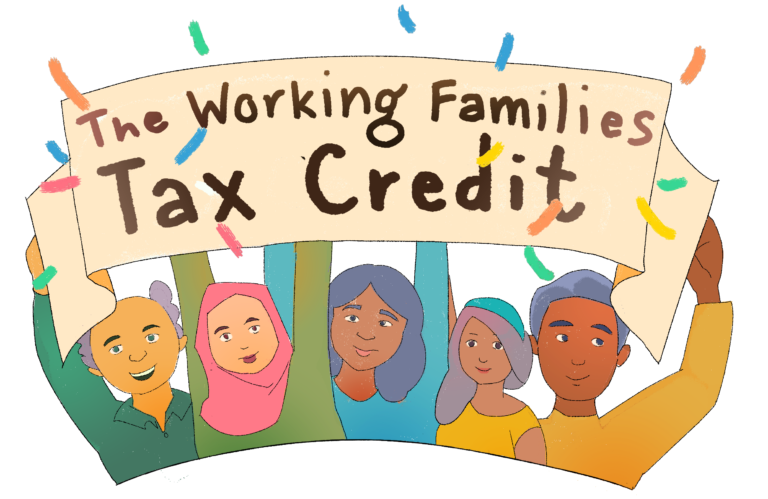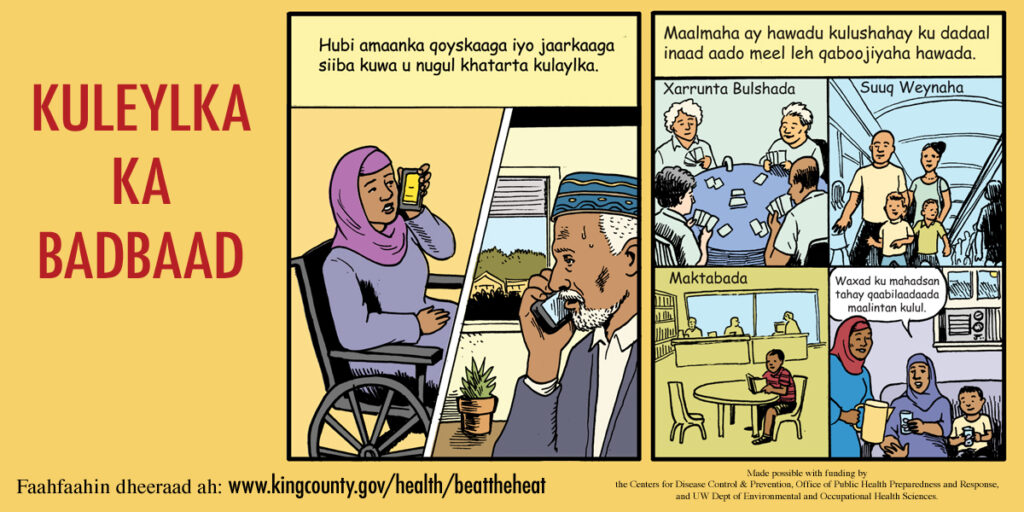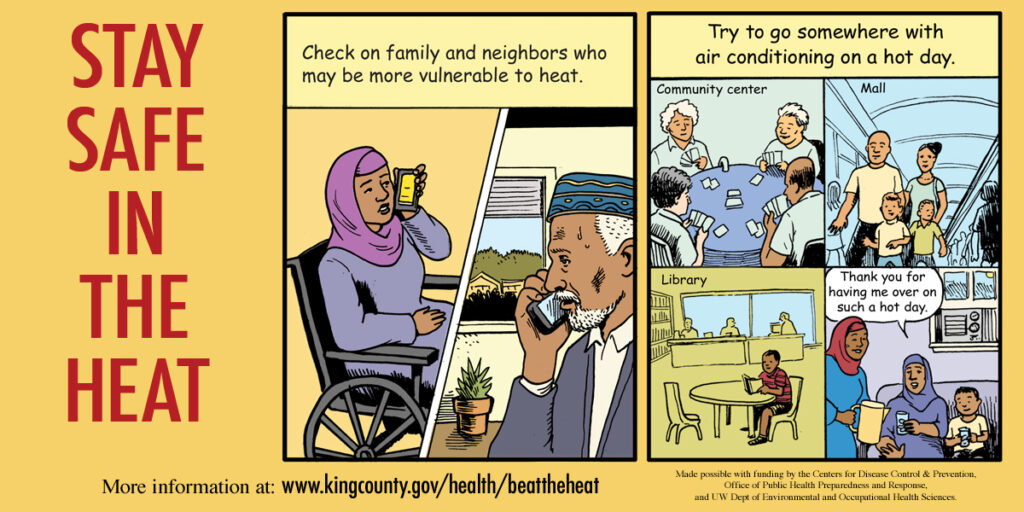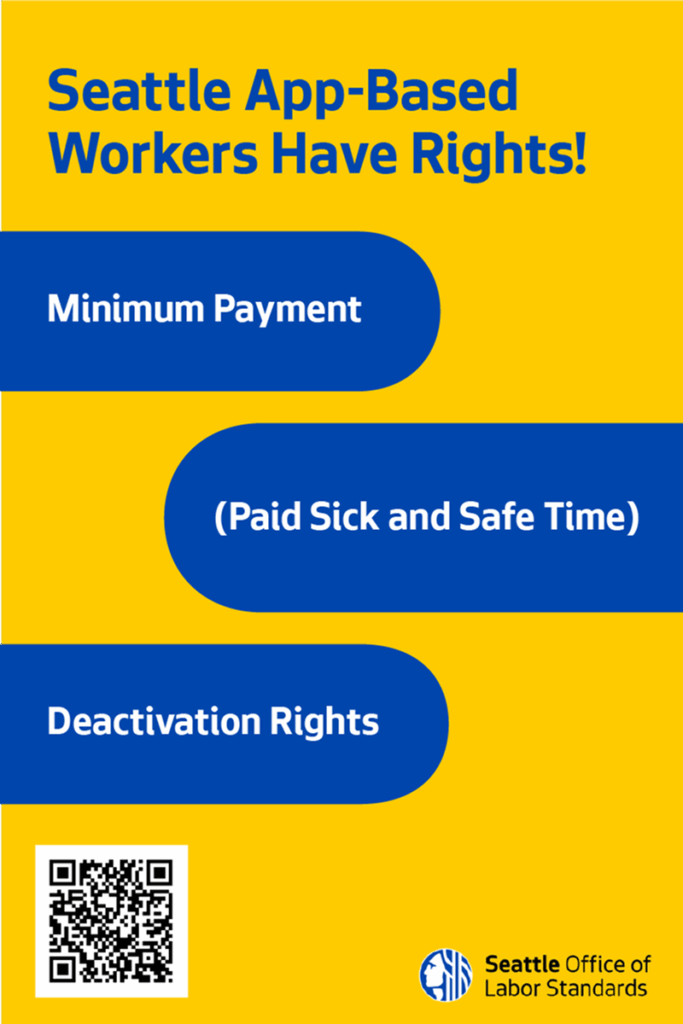
By April Dickinson and Melinda Young-Flynn
Did you know that there are two ways for people with low incomes to get access to cash to help pay for the things they need? These direct cash programs, the Working Families Tax Credit and Washington Immigrant Relief Fund, were made possible thanks to the consistent advocacy of communities and people across Washington. They are proof that people coming together for a common cause can lead to powerful change. The impact of people power was on full display at the Washington State Budget & Policy Center’s annual Budget Matters policy summit a few weeks ago. The virtual summit highlighted the work that went into passing these cash assistance programs in Washington state, and it highlighted current efforts to pass a statewide guaranteed basic income.
During the first Budget Matters session, “The power of coalition-driven movements,” Alizeh Bhojani of OneAmerica, Denisse Guerrero of Washington Community Alliance, and Joseph Lachman of Asian Counseling and Referral Service talked about the work they did, in partnership with so many other advocates, to pass the Working Families Tax Credit and Washington Immigrant Relief Fund in the state legislature during the past few years. Large coalitions of passionate, hardworking, and collaborative people worked together to get these programs through our state legislature – lifting up the voices and experiences of people who are struggling to make ends meet. These coalitions were driven by a shared desire to ensure everyone in our state, including undocumented workers who are often wrongly left out of federal cash programs, have the opportunity for economic dignity.
As a result of these coalitions’ work, the Washington Immigrant Relief Fund, which is run by the Washington Immigrant Solidarity Network and other community organizations, now provides at least $1,000 to eligible participants. Any immigrant over 18 who lives in Washington and who experienced hardship from the pandemic, but who isn’t eligible for federal stimulus funds or unemployment insurance due to their immigration status, can apply. (The deadline to apply for this year’s funds is November 14.)
And starting in 2023, people with low incomes will qualify for an annual state tax credit of up to $1,200 to use however they need. The Working Families Tax Credit website has more information about who is eligible and how to apply for this brand-new credit.
At another Budget Matters session, “Creating a statewide guaranteed basic income program,” Jennifer Bereskin (Qawalangin Tribe of Unalaska) of Governor Inslee’s Poverty Reduction Work Group steering committee and Dona Ponepinto of United Way of Pierce County, spoke about why our state needs a guaranteed basic income program. Ponepinto highlighted the Growing Resiliency in Tacoma (GRIT) program, a year-long pilot which gives 110 low-income families in Tacoma $500 a month to spend however they need to. Bereskin, who spoke about her experience with intergenerational poverty and homelessness, emphasized how important it is to have the perspective of people with lived experience in the rooms where policies are being made.
There is a big push for guaranteed basic income in our state and around the country. Because significant evidence points to the fact that when people with low incomes get cash without any strings attached, they do better, their communities do better, and their local economies do better.
Every year at Budget Matters, we are inspired by the work local leaders are doing to bring economic justice to the people structurally left out in Washington. The Washington State Budget & Policy Center is proud to partner with these advocates and coalitions to build on progress together. Learn more about our annual summit at budgetmatters.org and check out the work we do to ensure everyone in our state can thrive at budgetandpolicy.org
April Dickinson is the communications specialist and Melinda Young-Flynn is the communications director at the Washington State Budget & Policy Center, an organization that works to advance the economic well-being of people in Washington.









